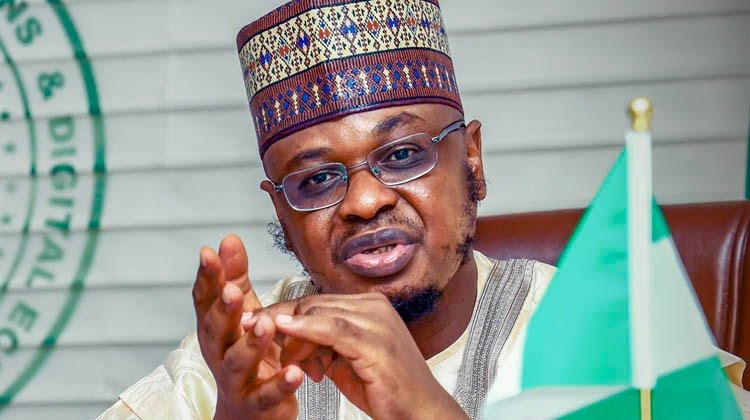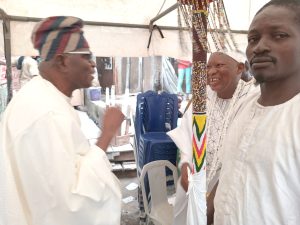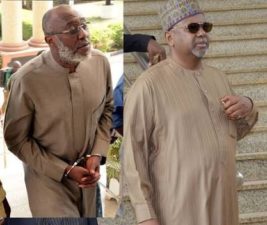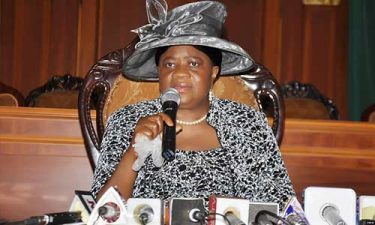By SUMAYYAH ADEFAKA
The Minister of Communications and Digital Economy, Prof. Isa Pantami has accused security agencies of not making maximum use of the linked Sim/NIN to fight crime.
The Minister made the accusation on Friday at the 4th National Identity Day commemoration in Abuja.

He said the Ministry and its agencies had sanitized the national identity database for accurate and reliable data but the security agencies had failed to make maximal utilization of the database to tackle the security challenges bedeviling the country.
According to him, the utilization of the database has been highly insignificant and he pleaded with them to leverage on the Sim/NIN linkage to curb insecurity.
‘‘We have sanitized our database and we are pleading with our security institutions to make use of this database; it not our work to do the security work to do security work, our work is to support them. The two databases are available for NIN and for SIM.
‘‘From the information available at my disposal, from the CEOs of these two institutions, the utilisation has been highly insignificant. It is because of this we are pleading that if they can leverage on this, we have no doubt they will be able address the significant challenges of security we are been confronted with,’’ he said.
Meanwhile, the Minister has revealed that his life was threatened because of the introduction of NIN and sim registration on BBC radio and many more but he resisted believing that nobody can control my life in this world only Almighty God.
‘‘We can only get our digital economy right when we continue to improve and encourage our citizens to enroll in our national data base. By the time I took supervision of NIMC, the total number of registration centres were not up to 1000 but today, we have over 50000.
‘‘Today, our national data base is on auto drive. We have established over 19 national policies and all of them are being implemented. This has never happened in the history of Nigeria.
‘‘When we commenced the process, many people turned against me. My life was threatened because of the introduction of NIN and sim registration on BBC radio and many more and I resisted believing that nobody can control my life in this world only Almighty God. We resisted and now the process is working. Sometimes I can sleep for one month without speaking to NIMC and there is no any problem and most of our citizens that were fighting at least are now silent.’’
He vowed that the administration would not relent in sanitizing the national identity database with a view to providing a reliable and clean database that would help the security agencies perform their functions more efficiently.
He explained that the ID day celebration was in supporting the ID4Africa Movement’s clarion call to all nations of the world and for the United Nations to adopt and recognise 16 September as World ID Day in consonance with the UN Sustainable Development Goal 16.9, which targets to provide legal identity for all including birth registration, by 2030. We are happy to be leading the world in this respect; and, I am happy to be a part of this history-making process.
He described digital identification as an important catalyst for various development initiatives in the continent, that could impact on trade, governance, social protection, financial inclusion, domestic resource mobilization, as well as security and human rights.”
‘‘Identity is a public good and a key pillar in the digital economy programme of Mr. President; and we are happy to be part of, and instrumental to the growth of Nigeria’s digital economy. The United Nations Economic Commission for Africa rightly noted that “Digital Identity and the digital economy are not only linked, but are also, reinforcing, as digital ID is the basis for digital economy platforms.
Deloitte calls digital identity the fabric of the digital economy and by expanding the digital identity database, we have positioned Nigeria to reap the benefits of embracing the digital economy in a sustainable way.’’
He called on religious and traditional institutions to play their role in ensuring the success of the identification program in the country, insisting that, ‘’we must leverage the traditional rulers respect and considerable influence to drive the mobilization of many communities and speed up the delivery of unique IDs to our people.
Earlier in his address, the Director General of NIMC, Engr. Aliyu Aziz said NIMC has made great strides on so many fronts in the last three years, increasing the enrolment tally by 52 million in three years.
‘‘NIMC has made great strides on so many fronts in the last three years. From just over 1,000 enrolment centres and 2,000 enrolment devices across the country, NIMC in partnership with its licensed enrolment partners now has over 15,000 enrolment centres and over 29,000 enrolment devices deployed nationwide. This is one of the reasons enrolments have increased tremendously with over 89 million NINs generated successfully.
‘‘On the international level, NIMC today has diaspora enrolment centres in over 40 countries, with more centres and countries scheduled to be added in the coming months. This gives Nigerians in the Diaspora opportunities to enrol and have their national identity even while outside the shores of Nigeria.
‘‘The more government knows the accurate number of its population and the right demographics, the better the government is placed to plan well for infrastructure, social welfare, and economic development for the country. This, therefore, underscores the importance of identity, and directly links to the importance of today’s commemoration of the Nigerian National Identity Day’’.




